-
 Bitcoin
Bitcoin $82,817.8607
0.37% -
 Ethereum
Ethereum $1,786.3450
-0.21% -
 Tether USDt
Tether USDt $0.9995
-0.03% -
 XRP
XRP $2.0581
2.05% -
 BNB
BNB $588.2756
-0.68% -
 USDC
USDC $0.9998
0.00% -
 Solana
Solana $115.3483
0.38% -
 Dogecoin
Dogecoin $0.1636
2.68% -
 TRON
TRON $0.2386
2.84% -
 Cardano
Cardano $0.6358
-0.31% -
 UNUS SED LEO
UNUS SED LEO $9.3782
-0.39% -
 Toncoin
Toncoin $3.3861
-6.95% -
 Chainlink
Chainlink $12.5471
-1.04% -
 Stellar
Stellar $0.2562
0.24% -
 Avalanche
Avalanche $17.9826
0.03% -
 Shiba Inu
Shiba Inu $0.0...01210
0.63% -
 Sui
Sui $2.1798
-1.97% -
 Hedera
Hedera $0.1599
1.32% -
 Polkadot
Polkadot $4.0300
3.14% -
 Litecoin
Litecoin $82.4348
0.50% -
 MANTRA
MANTRA $6.2928
-0.26% -
 Bitcoin Cash
Bitcoin Cash $298.4903
-1.02% -
 Bitget Token
Bitget Token $4.4895
-0.77% -
 Dai
Dai $1.0000
0.00% -
 Ethena USDe
Ethena USDe $0.9995
-0.01% -
 Monero
Monero $215.3108
0.00% -
 Hyperliquid
Hyperliquid $11.2063
-1.26% -
 Uniswap
Uniswap $5.7675
-1.15% -
 Pi
Pi $0.5200
-14.33% -
 NEAR Protocol
NEAR Protocol $2.4551
3.63%
Detailed steps to get a Bitcoin address
A Bitcoin address is your unique identifier on the network, generated by wallets like Electrum or Ledger, and should never be confused with your private key.
Mar 31, 2025 at 05:01 am
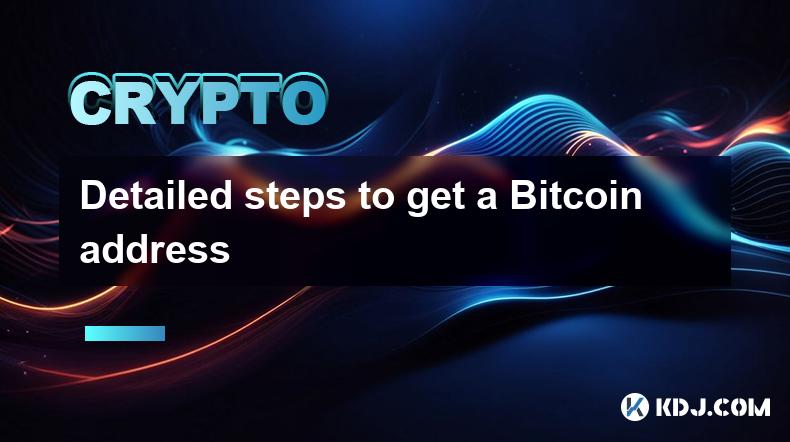
Understanding Bitcoin Addresses
A Bitcoin address is essentially your unique identifier on the Bitcoin network. It's a string of alphanumeric characters, similar to an email address, that allows others to send you bitcoins. Crucially, it's not your private key; you don't reveal your private key to anyone. Losing your private key means losing access to your bitcoins. Think of your address as your public-facing identity, while your private key is your secret password.
Obtaining a Bitcoin Address: The Methods
There are several ways to get a Bitcoin address, each with its own nuances and security implications. The most common methods involve using a Bitcoin wallet.
Using a Software Wallet: Software wallets are applications installed on your computer or mobile device. Popular examples include Electrum, Exodus, and BlueWallet. These wallets generate addresses for you automatically. After installation, simply create a new wallet and the software will generate your first Bitcoin address. Remember to back up your seed phrase – this is crucial for recovering your wallet if you lose access to your device.
Using a Hardware Wallet: Hardware wallets are physical devices dedicated to storing your private keys. Ledger and Trezor are prominent examples. They offer superior security compared to software wallets as your private keys never leave the device. The process of obtaining an address is similar to software wallets: you connect the device, open the wallet software, and generate a new address.
Using an Online Wallet (Exchange): Exchanges like Coinbase or Binance offer online wallets. While convenient, they carry higher security risks compared to software or hardware wallets, as your keys are held by the exchange. After creating an account and verifying your identity, you'll typically find your Bitcoin deposit address within your account dashboard.
Using a Paper Wallet: A paper wallet involves generating a Bitcoin address and its corresponding private key offline, then printing them on paper. While offering strong security if handled correctly, it's susceptible to physical damage or loss. This method requires a thorough understanding of cryptography and security best practices. Generating a paper wallet involves using specialized software or websites designed for this purpose.
Understanding Address Types
Bitcoin addresses have evolved over time. You might encounter different types:
P2PKH (Pay-to-Public-Key-Hash): This is the most common type of Bitcoin address, starting with a '1' or a '3' (for legacy and P2SH addresses respectively).
Bech32 (SegWit): These addresses start with 'bc1' and are considered more efficient and secure than P2PKH addresses. They're increasingly becoming the standard.
Your wallet will typically generate the most appropriate address type automatically. You generally don't need to worry about choosing a specific type unless you're dealing with older systems or specific transaction requirements.
Security Considerations When Using Bitcoin Addresses
Never share your private keys with anyone. Your private key grants complete control over your bitcoins. Anyone with access to it can steal your funds.
Be wary of phishing scams. Scammers often attempt to trick users into revealing their private keys or sending bitcoins to fraudulent addresses. Only use reputable wallets and exchanges.
Verify addresses carefully before sending bitcoins. A single typo can result in irreversible loss of funds. Double-check the address multiple times before confirming any transaction.
Keep your software and hardware updated. Regular updates patch security vulnerabilities that could be exploited by attackers.
Use strong passwords and enable two-factor authentication (2FA) wherever possible. This adds an extra layer of security to your accounts.
Different Wallet Types and Address Generation
Each wallet type has its own method of address generation, but the fundamental principle remains the same: a cryptographic process creates a unique address linked to your private key. The user interface may vary, but the core functionality is consistent across different wallets.
Let's examine some key differences:
Software wallets: These usually offer a simple "Receive" button that automatically generates a new address each time you need one.
Hardware wallets: Similar to software wallets, they typically offer a straightforward interface for generating new addresses. The advantage here is the added security of the hardware device.
Online wallets (exchanges): These typically provide a dedicated deposit address for each cryptocurrency, which is displayed on your account dashboard. You usually don't manually generate addresses on exchanges.
Frequently Asked Questions
Q: Can I reuse a Bitcoin address?
A: Yes, you can reuse a Bitcoin address. However, for enhanced privacy, it's generally recommended to use a fresh address for each transaction.
Q: How many Bitcoin addresses can I have?
A: You can have as many Bitcoin addresses as you need. Most wallets allow you to generate new addresses easily.
Q: What happens if I lose my Bitcoin address?
A: If you lose your Bitcoin address, you can still access your bitcoins if you have your private key or seed phrase. However, without these, your bitcoins are effectively lost.
Q: Is it safe to use online wallets to generate Bitcoin addresses?
A: While convenient, online wallets present higher security risks than software or hardware wallets because your keys are controlled by the exchange. Use reputable exchanges and practice good security habits.
Q: How do I choose the right wallet to generate a Bitcoin address?
A: The best wallet for you depends on your technical skills and security preferences. Software wallets offer convenience, hardware wallets offer superior security, and online wallets offer ease of access but compromise security.
Q: What if I send Bitcoin to the wrong address?
A: Sending Bitcoin to the wrong address is irreversible. The funds are lost unless the recipient cooperates to return them. Always double-check the address before sending.
Q: Are there any fees associated with generating a Bitcoin address?
A: Generating a Bitcoin address itself is typically free. However, you may incur transaction fees when sending or receiving Bitcoin.
Q: Can I generate a Bitcoin address without a wallet?
A: While technically possible using cryptographic tools, it is strongly discouraged. Wallets provide a secure and user-friendly environment for managing your private keys and addresses. Attempting this without proper knowledge can lead to loss of funds.
Disclaimer:info@kdj.com
The information provided is not trading advice. kdj.com does not assume any responsibility for any investments made based on the information provided in this article. Cryptocurrencies are highly volatile and it is highly recommended that you invest with caution after thorough research!
If you believe that the content used on this website infringes your copyright, please contact us immediately (info@kdj.com) and we will delete it promptly.
- Ripple Has Emerged (Mostly) Victorious From Its Long-Running Battle With the Securities and Exchange Commission (SEC)
- 2025-04-04 20:00:12
- New Crypto Coin XYZVerse (XYZ) May Soon Surpass Shiba Inu (SHIB)
- 2025-04-04 20:00:12
- SUI Price Has Recently Formed an Inverse Head and Shoulders Pattern, a Technical Signal for a Bullish Reversal
- 2025-04-04 19:55:11
- Ernst & Young (EY) Introduces Nightfall_4, an Upgraded Layer-2 Scaling Solution for Ethereum
- 2025-04-04 19:55:11
- Shiba Inu (SHIB) Price Prediction: Is SHIB Price Losing Momentum or Gearing Up for a Comeback?
- 2025-04-04 19:50:12
- Wintermute seizes the opportunity: 75 million in FDUSD transferred during the depeg for a potential million-dollar profit
- 2025-04-04 19:50:12
Related knowledge

BTC's top ten global trading platforms
Apr 03,2025 at 10:42am
Top 10 Bitcoin trading platforms in the world1. OKX (Ou Yi):✅ Advantages: Have the world's largest compliance license to ensure fund security Provides the best contract trading depth and supports U- and coin-price trading Low transaction fees, Maker can enjoy negative rates (refund transaction fees) Applicable groups: short-term trading experts, con...
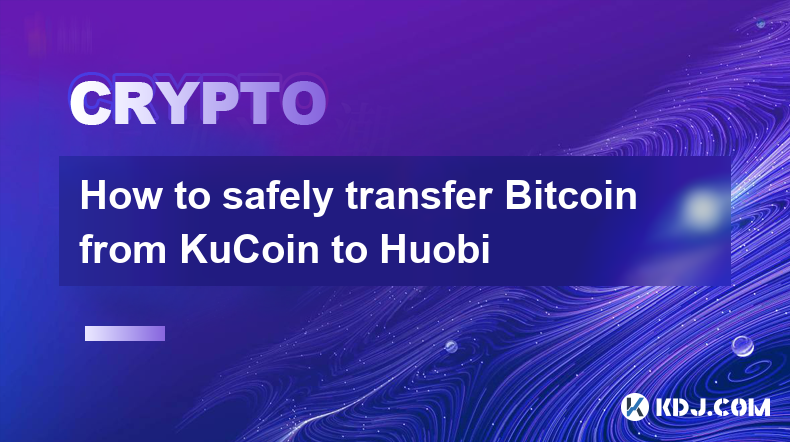
How to safely transfer Bitcoin from KuCoin to Huobi
Apr 02,2025 at 04:49pm
Transferring Bitcoin from one exchange to another, such as from KuCoin to Huobi, is a common practice among crypto enthusiasts. However, ensuring the safety and security of these transactions is paramount. This guide will walk you through the step-by-step process of safely transferring Bitcoin from KuCoin to Huobi, highlighting essential security measur...
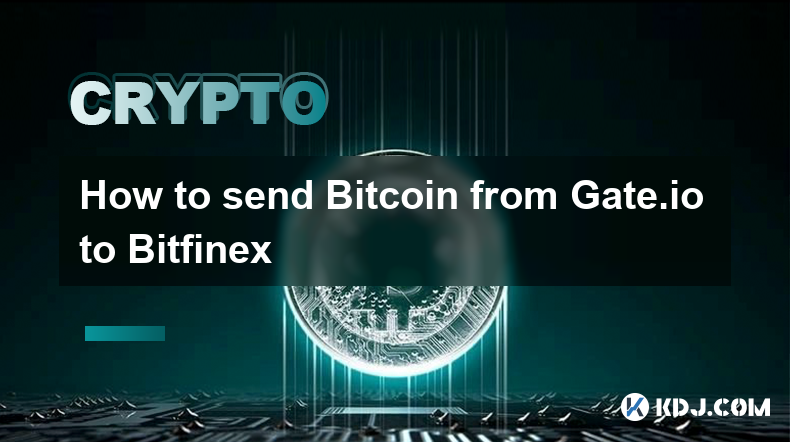
How to send Bitcoin from Gate.io to Bitfinex
Apr 03,2025 at 07:35am
Sending Bitcoin from Gate.io to Bitfinex involves a few straightforward steps. First, you need to ensure that you have a verified account on both exchanges. Once verified, you'll need to generate a Bitcoin deposit address on Bitfinex. After obtaining the address, you can initiate a withdrawal from Gate.io to the Bitfinex address. It's crucial to double-...
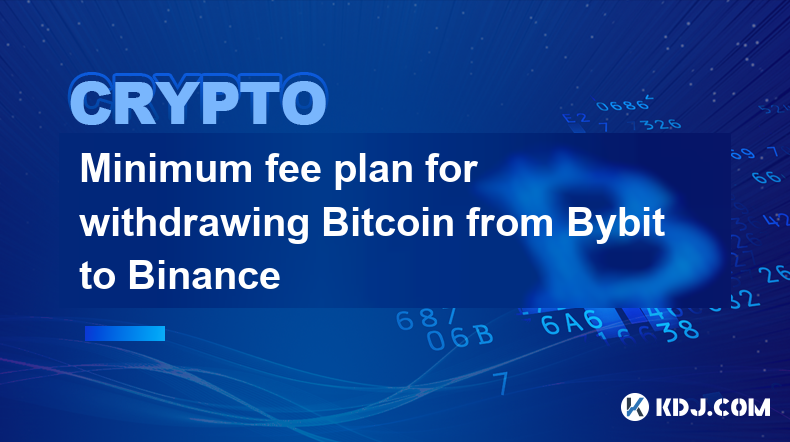
Minimum fee plan for withdrawing Bitcoin from Bybit to Binance
Apr 04,2025 at 02:07pm
When it comes to withdrawing Bitcoin from Bybit to Binance, understanding the minimum fee plan is crucial for optimizing your transactions. Bybit and Binance, both leading cryptocurrency exchanges, have their own fee structures that can impact the cost-effectiveness of your transfers. In this article, we will delve into the specifics of the , providing ...
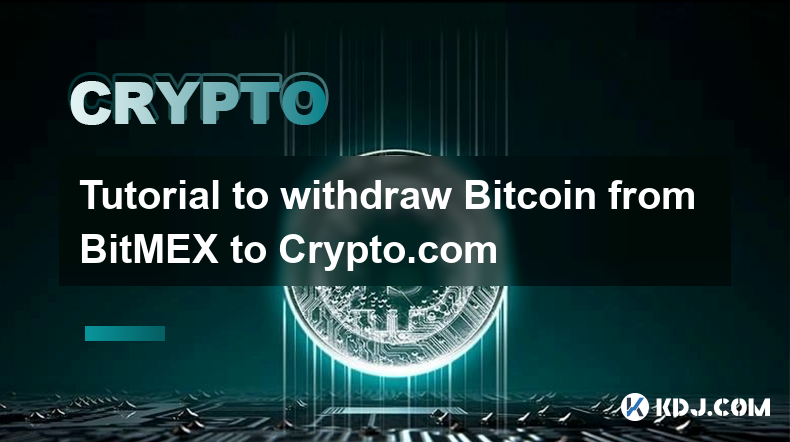
Tutorial to withdraw Bitcoin from BitMEX to Crypto.com
Apr 03,2025 at 08:56am
Withdrawing Bitcoin from BitMEX to Crypto.com is a straightforward process, but it requires careful attention to detail to ensure the funds are transferred safely and efficiently. Before you start, ensure that you have an active account on both platforms, and that you have completed the necessary verification processes. This tutorial will guide you thro...

How to transfer Bitcoin between Bitfinex and Huobi
Apr 04,2025 at 03:28am
Transferring Bitcoin between Bitfinex and Huobi is a straightforward process that requires careful attention to detail to ensure security and efficiency. This guide will walk you through the steps needed to successfully move your Bitcoin from one exchange to another, focusing on the specific procedures for Bitfinex and Huobi. Whether you're consolidatin...

BTC's top ten global trading platforms
Apr 03,2025 at 10:42am
Top 10 Bitcoin trading platforms in the world1. OKX (Ou Yi):✅ Advantages: Have the world's largest compliance license to ensure fund security Provides the best contract trading depth and supports U- and coin-price trading Low transaction fees, Maker can enjoy negative rates (refund transaction fees) Applicable groups: short-term trading experts, con...

How to safely transfer Bitcoin from KuCoin to Huobi
Apr 02,2025 at 04:49pm
Transferring Bitcoin from one exchange to another, such as from KuCoin to Huobi, is a common practice among crypto enthusiasts. However, ensuring the safety and security of these transactions is paramount. This guide will walk you through the step-by-step process of safely transferring Bitcoin from KuCoin to Huobi, highlighting essential security measur...

How to send Bitcoin from Gate.io to Bitfinex
Apr 03,2025 at 07:35am
Sending Bitcoin from Gate.io to Bitfinex involves a few straightforward steps. First, you need to ensure that you have a verified account on both exchanges. Once verified, you'll need to generate a Bitcoin deposit address on Bitfinex. After obtaining the address, you can initiate a withdrawal from Gate.io to the Bitfinex address. It's crucial to double-...

Minimum fee plan for withdrawing Bitcoin from Bybit to Binance
Apr 04,2025 at 02:07pm
When it comes to withdrawing Bitcoin from Bybit to Binance, understanding the minimum fee plan is crucial for optimizing your transactions. Bybit and Binance, both leading cryptocurrency exchanges, have their own fee structures that can impact the cost-effectiveness of your transfers. In this article, we will delve into the specifics of the , providing ...

Tutorial to withdraw Bitcoin from BitMEX to Crypto.com
Apr 03,2025 at 08:56am
Withdrawing Bitcoin from BitMEX to Crypto.com is a straightforward process, but it requires careful attention to detail to ensure the funds are transferred safely and efficiently. Before you start, ensure that you have an active account on both platforms, and that you have completed the necessary verification processes. This tutorial will guide you thro...

How to transfer Bitcoin between Bitfinex and Huobi
Apr 04,2025 at 03:28am
Transferring Bitcoin between Bitfinex and Huobi is a straightforward process that requires careful attention to detail to ensure security and efficiency. This guide will walk you through the steps needed to successfully move your Bitcoin from one exchange to another, focusing on the specific procedures for Bitfinex and Huobi. Whether you're consolidatin...
See all articles




















































































